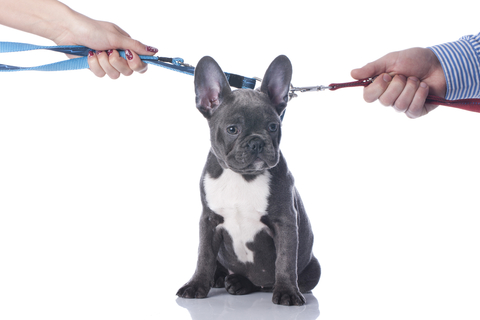Pets and Divorce: Who gets Custody of Furry Friends
- August 16, 2018
- BarrSternberg
- Comments Off on Pets and Divorce: Who gets Custody of Furry Friends
When it comes to divorce, pets custody often becomes one of the biggest arguments. Learn more about how the court decides on who gets the custody of a beloved animal.
PETS AND THE LAW
Unfortunately, the law often treats pets as a personal possession or property, no different than a car or a house. When deciding the destiny of a pet, the court firstly will consider legal documentation to determine which spouse is the owner. If your name is on one of the documents listed below, your chances of keeping your furry friend significantly increase:
- Registration and license: That document will have the name of the person who registered the pet and paid the licensing fees.
- Microchip records: microchipping serves as a record of ownership.
- Vet records: The court may consider veterinary medical records and bills.
- Pedigree registries: if you own purebred pets, registering them with the American Kennel Club or another recognized organization will support your legal ownership rights.
If you and your spouse come to a written agreement about the pet, the court will enforce it. If there is no agreement, the court will consider the following factors:
- Who owned the pet before marriage? The pet may stay with its original owner.
- Who was it gifted to? If someone gifted the pet to only one specific spouse, not both of them, the pet would remain with that person.
- Who purchased the pet? That usually requires the provision of the documents listed above.
- Who has a greater need for the pet? You are likely to get the custody of a service dog or an emotional support companion.
- Who gets the custody of minor children? Divorce is quite often a very difficult period for children; the court may keep pets with kids, so they don’t experience even greater stress due to the separation from their
beloved animals.
VERMONT COURT WILL LIKELY TO CONSIDER INTERESTS OF PETS
In 2014, the Vermont Supreme Court received Hament v. Baker, a case about the argument between two spouses over the dog custody after the divorce. In its decision-making process, the Vermont Court established a “best interest of the dog” standard deciding to treat the pet more like a child rather than property.
That being said, more and more often the court considers what is the best for pets, not only for their owners. Some of the factors that court consider when deciding who gets the custody of the pet are:
- Who takes care of the pet? If you were the one who always fed, cleaned, walked the animal, it is likely that you would get the custody.
- Who took the pet to the vet? Your veterinarian may testify for you.
- Your living conditions after the divorce. The court may consider who is best equipped to provide good care to the pet.
If you and your spouse both prove to the court the legal ownership and excellent treatment of your pet, judges may award shared custody, visitations, or even support payments to resolve the argument.

 802-442-6341
802-442-6341



